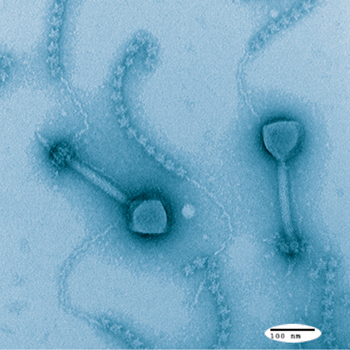Viruses play a crucial role in phylogeny, diversification of species, and geochemical cycle drivers of all kingdoms of living organisms occurring worldwide. The mystery of the evolution of life is linked with how viruses and their host organisms evolved. Ribonucleic acid (RNA) is the genetic material in RNA viruses that can be single-stranded or double-stranded (ssRNA/dsRNA) based on the type of virus under consideration.

RNA viruses are generalized for their pathogenic capacities in plants and human beings. But the emphasis on their infectious nature has surpassed the study on their diversification and environmental abundance. The lack of data has hampered evolutionary research to determine where RNA viruses originated.
In terms of viruses, the ocean was formerly a vast desert. Currently, scientists are looking to the millions of organisms that we already know live in the world’s oceans to solve riddles about their biological organizations, distribution, and significance.
Tara oceans is a wide-ranging project held on an international scale to determine and analyze the obscurity of ocean life and their biodiversity on the genetic level. It is a voyage worthy of the tremendous worldwide explorations of the 19th century in pursuit of life, such as Charles Darwin’s, but with 21st-century technology comprising genomic information and microscopic vision.
“Need for speed” is reconcilable with the RNA virus discovery as it became inevitable after the surge of Covid-19 having a million times higher mutation rate than their host. The harmful RNA-based viruses associated with acute diseases need to investigate for better therapeutic and prophylactic measures. RNA is associated with protein formation and regulation of the coding region related to the proper functioning, which depicts the significance of evolutionary and taxonomic studies of these cryptic RNA viruses.

Zayed et al. identified thousands of viral RNA sequences in the Tara oceans. RNA sequence data optimize the method of their classification. Further, filling in previously unfilled gaps increases the number of known RNA virus groups, allowing for developing a more robust evolutionary tree and the confirmation of concepts about the RNA virus evolution.
The authors uncovered a lost connection in the development of RNA viruses and discovered new phyla that reside in the oceans and might cause infection in mitochondria. For reproduction, these viruses need an ancient enzyme called RNA-directed RNA polymerase (RdRp), employed as an indicator of deep evolutionary ties.
RNA viruses inadequately study outside the disease-causing arena compared to DNA viruses. In this study, ≈28 terabases of Global Ocean RNA sequences were examined to magnEartEarth’s RNA virus lists and taxonomic system, explore their evolutionary roots, and evaluate their marine biogeography.
Identification of more than fifty percent of new classes of RNA viruses has doubled their phyla and easy to understand the evolution. Viruses of the new phyla known as Taraviricota and Arctiviricota, a broken thread in early viral RNA evolution are ubiquitous and prominent in the oceans. These efforts provide the basic knowledge necessary to combine RNA viruses into environmental and epidemiological models.
This article is written by Arzoo Ahad and Mahnoor Ilyas, are PhD scholars at Atta-ur-Rahman School of Applied Biosciences (ASAB), National University of Sciences and Technology (NUST), Islamabad.
References:
- Zayed, A. A., Wainaina, J. M., Dominguez-Huerta, G., Pelletier, E., Guo, J., Mohssen, M., . . . Wincker, P. (2022). Cryptic and abundant marine viruses at the evolutionary origins of Earth’s RNA virome. Science, 376(6589), 156-162.
- Labonté, J.M., Campbell, K.L. (2022). There’s more to RNA viruses than diseases. Science, 376(6589), 138-139.
- Duffy S. (2018). Why are RNA virus mutation rates so damn high? PLoS biology, 16(8), e3000003. https://doi.org/10.1371/journal.pbio.3000003
- Studying the biodiversity of marine plankton | Tara Oceans (fondationtaraocean.org).
Also, Read: https://scientiamag.org/viruses-villains-not-always/

Arzoo Ahad is a Ph.D. scholar at Atta-ur-Rahman School of Applied Biosciences (ASAB), National University of Sciences and Technology (NUST), Islamabad.

